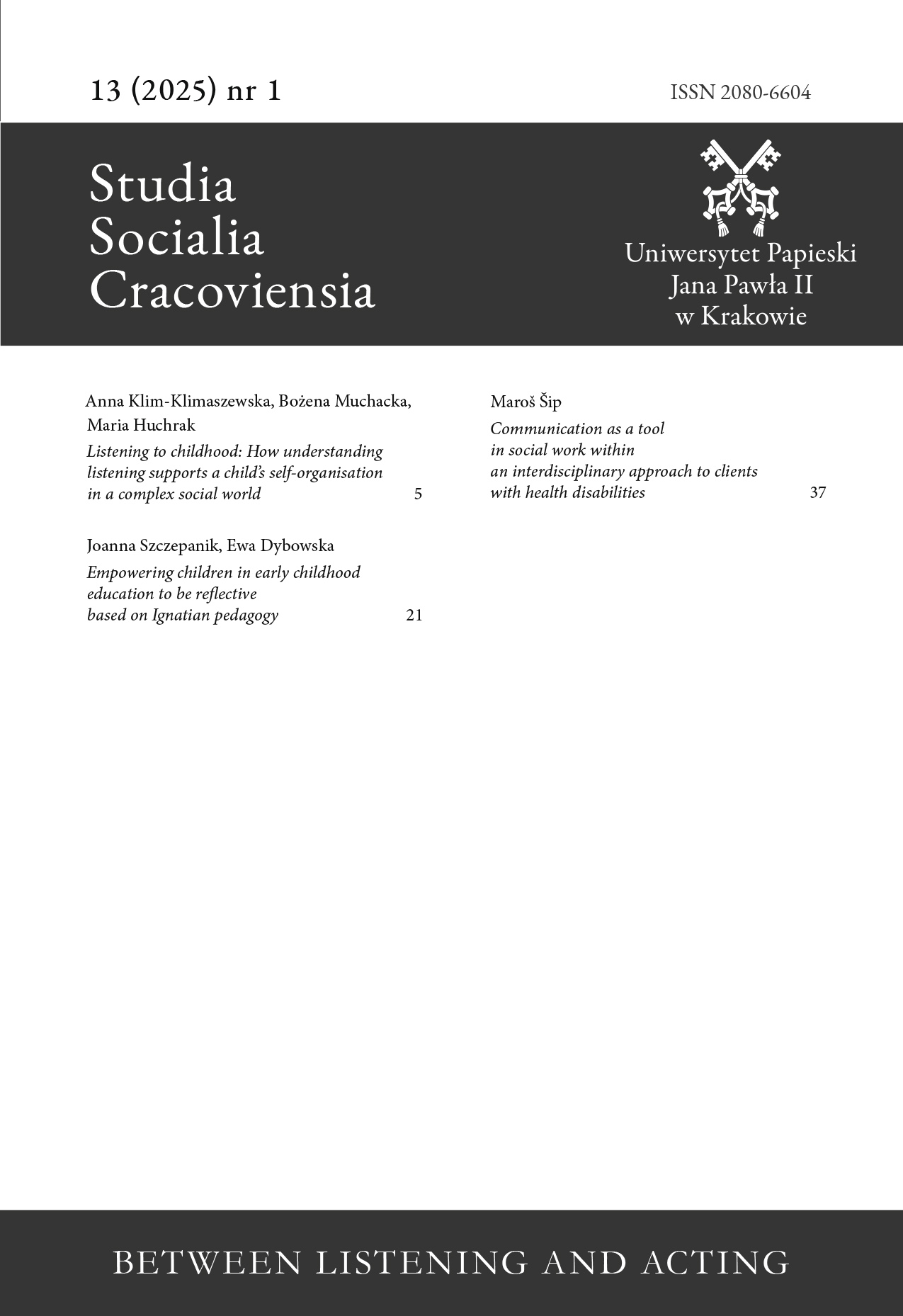Listening to childhood: How understanding listening supports a child’s self-organisation in a complex social world
DOI:
https://doi.org/10.15633/ssc.13101Keywords:
children’s self-organisation, understanding listening, child autonomy, individualised educationAbstract
The article explores the issue of self-organization in preschool-aged children as a key developmental competence influencing the functioning of cognitive, emotional, social, and executive domains. It presents the multidimensional nature of self-organisation, considering sensory preferences, thinking styles, personality types, and gender differences. Particular emphasis is placed on the role of empathetic and understanding listening as a foundation for effectively supporting the child’s individual organisational style. The author argues that attentive and empathetic communication between adults and children not only fosters autonomy and essential life skills but also builds trust and contributes to long-term psychological well-being. Recognising and respecting the individual developmental needs of children is presented as a prerequisite for creating educational and caregiving environments that support holistic development.
References
JFK (1960), The Campaign and the Candidates, NBC-TV Show No. 3, Interview by Chet Huntley and David Brinkley of Senator John F. Kennedy in his home at Hayannis Port, Mass., September 30, 1960, for presentation, October 1, 1960.
Kovolik, S., & Olsen, K. (1994), ITI: The model: Integrated thematic instruction, Books for Educators, Inc.
Miller, A. (2008). The drama of the gifted child: The search for the true self. Basic Books.
Nakone, L. (2005). Organizing for your brain type. Finding your own solution to managing time, paper, and stuff, St. Martin’s Griffin.
Nakone, L. (2006). Early child has a thinking style. A guide to recognizing and fostering each child’s natural gifts and preferences — to help them learn, thrive, and achieve, Penguin Group Inc.
Szuman, S. (2014), Osobowość i charakter, PWN.
Downloads
Published
Issue
Section
License
Copyright (c) 2025 Anna Klim-Klimaszewska, Bożena Muchacka, Maria Huchrak

This work is licensed under a Creative Commons Attribution 4.0 International License.
Authors who publish with this journal agree to the following terms:
- Authors retain the copyright and full publishing rights without restrictions, and grant the journal right of first publication with the work simultaneously licensed under a Creative Commons Attribution 4.0 International License that allows others to share the work with an acknowledgement of the work's authorship and initial publication in this journal.
- Authors are able to enter into separate, additional contractual arrangements for the non-exclusive distribution of the journal's published version of the work (e.g., post it to an institutional repository or publish it in a book), with an acknowledgement of its initial publication in this journal.
- Authors are permitted and encouraged to post their work online (e.g., in institutional repositories or on their website) prior to and during the submission process, as it can lead to productive exchanges, as well as earlier and greater citation of published work (See The Effect of Open Access).

